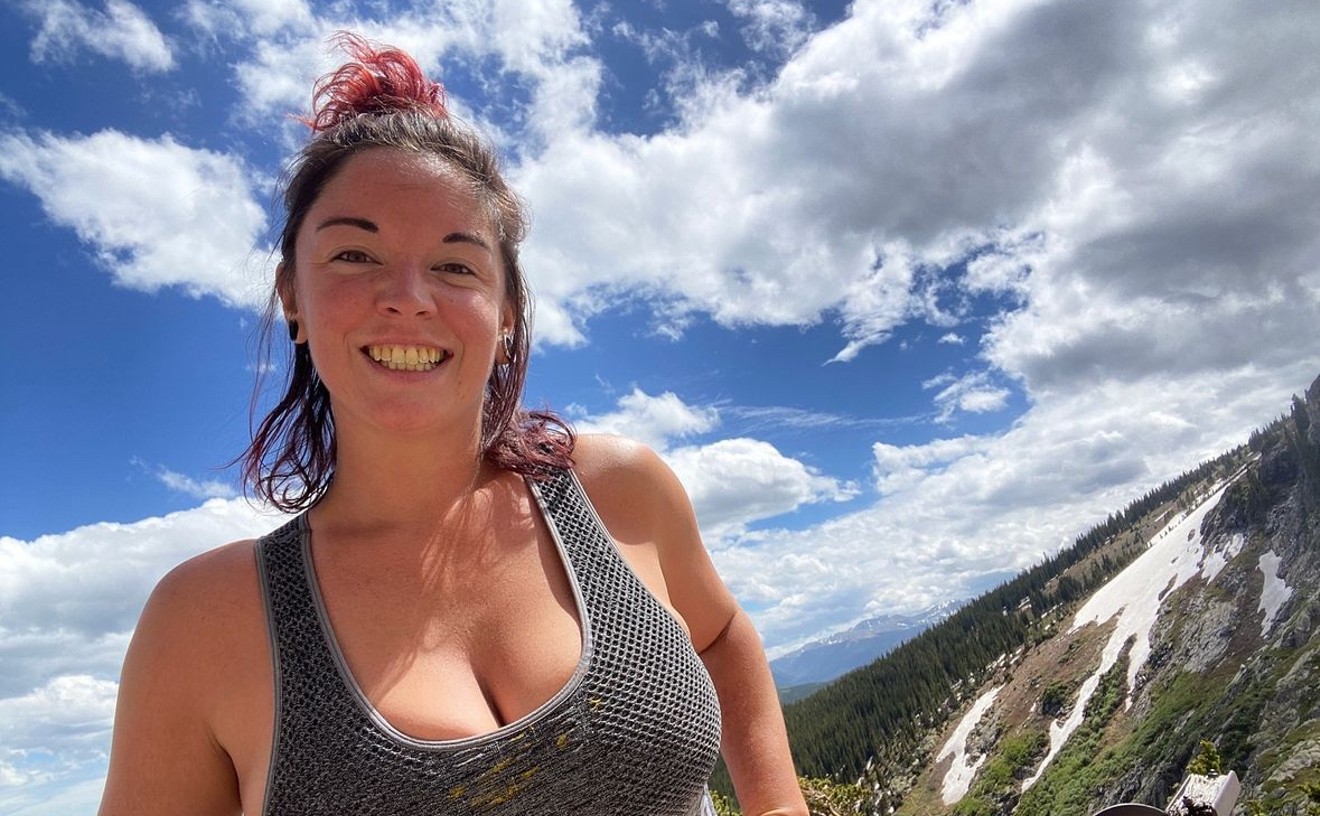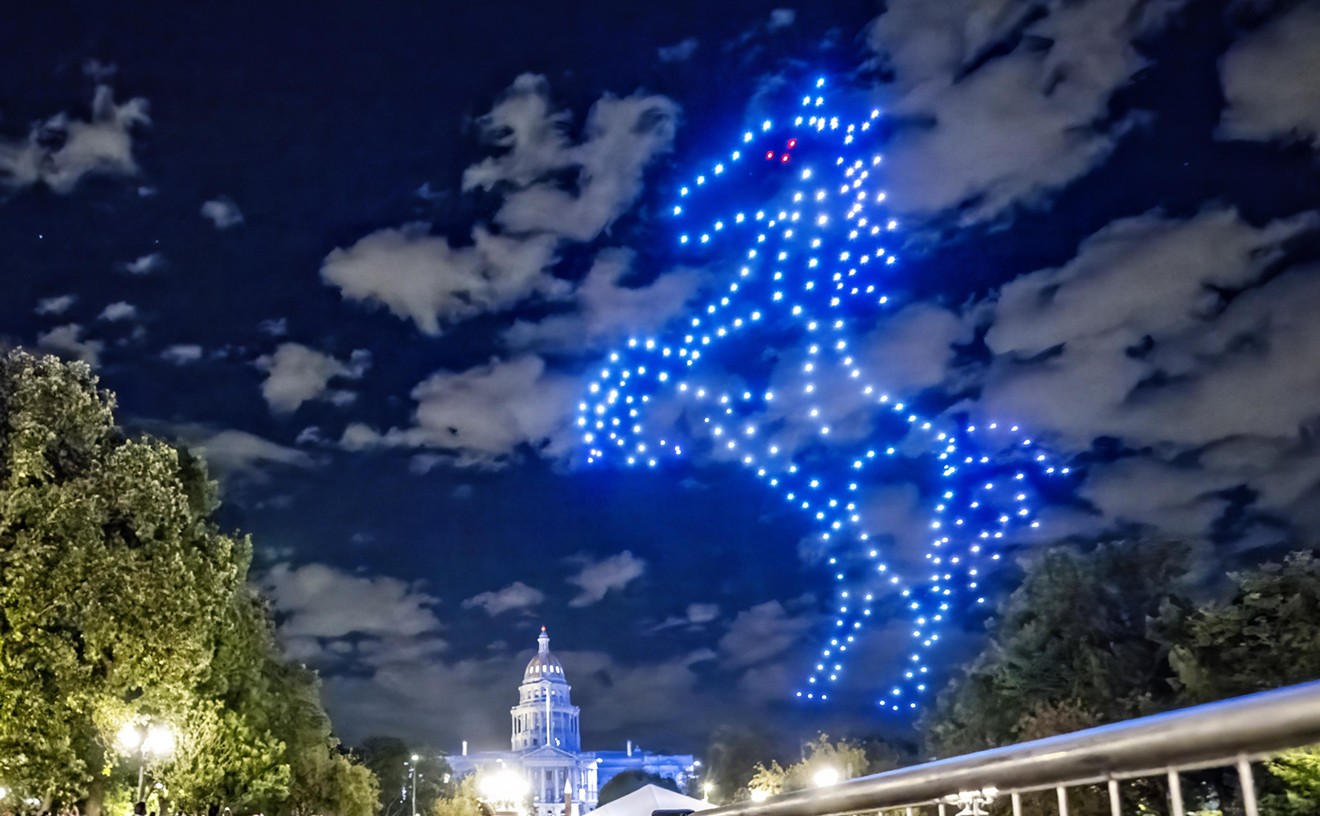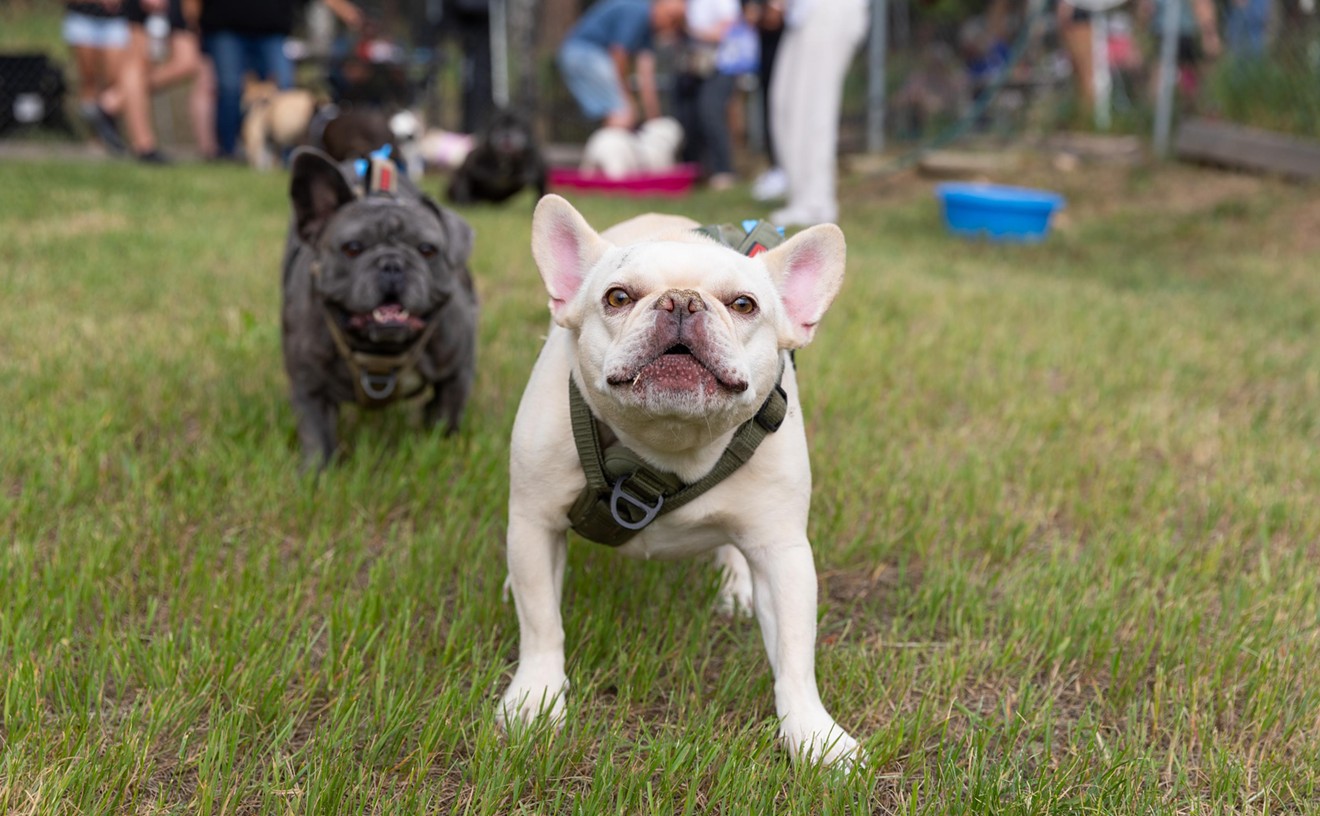In advance of that event, Kevorkian spoke with Westword about the state of feminism in 2013, and her work as an artist in the contemporary art world.
See also: - 100 Colorado Creatives: Feminism & Co. co-curator Elissa Auther - Scholar and fighter L.A. Jennings talks feminism in the world of Mixed Martial Arts - Artist Rachelle Beaudoin on Kathleen Hanna's "Slut" proclamation and co-opted sexuality
Westword: Where do you think we are as feminists in 2013? To me, it seems that we are fighting an uphill battle once again, maybe more than we were in the last two decades.
Ellina Kevorkian: I think it's a relevant question; it's a question I'm actually asking myself over and over and over. I think many women are. I think women of the past generation, women of my generation -- women in their 30s and 40s -- are trying to figure out what feminism means. I read this piece in Rolling Stone recently -- an interview with Stevie Nicks, about feminism and women in the '70s and where it now. And she's like, what in the fuck is going on? (Laughs.) I feel like everything is being reversed.
I understand that. I think about all of the pop-lets -- little pop stars -- of five or ten years ago: Nicky Hilton and Paris Hilton, Britney Spears and Lindsay Lohan, all doing those crotch shots for the media. It was so tasteless to me, for many, many reasons. But I also come from Gilman Street, like 1980s punk in Oakland. So on the other hand I'm thinking, this is amazing -- it's in your face. But it's not so simple.
I feel that we are more than ever reassessing our identities right now; life seems so fractured and fragmented. We're receiving so many streams of information from the Internet, cable television, our news sources, what we're getting in school, what we're getting from our peers. I'm personally feeling very fragmented in terms of how I process and receive it all.
I worked on an exhibition about two years ago for Pacific Standard Time (Getty Research Institute initiative that focuses on postwar art in Los Angeles) where I basically curated an exhibition of 1970s performance artists costumes and garments into a show. That was an incredible experience -- I went about finding, researching and interviewing all of these performance artists. Many of them were feminist artists. Speaking with a lot of these artists, it really got me on a roll about feminism, and how I'm perceiving it today. How I, as an artist in the contemporary art world have a sort of wincing, grating response to it.
I don't -- and I would imagine very few women artists -- want to relegate their art to the ghettoization of "feminist art." You want your work to be seen as art; you're tired of the argument of whether it is feminist or not. My experience is as relatable as your experience, period. I was thinking a lot about the women I know who are resistant to being categorized as feminists, for fear of being put into the marginalized group of feminist artists. I wear the feminist label proudly, but I don't necessarily want my work to only be understood within that context. Right. Because unfortunately, your work can be written off when it's considered "feminist," instead of acknowledged that it may be part of the feminist conversation, among other things.I think about relational aesthetics; Nicolas Bourriaud's theory of creating social contexts where living becomes art and through the experience of the viewer the art becomes complete, or that the viewing itself becomes art. I really started thinking about that in terms of my life as a woman, as a mother, as a curator, as an artist. I got fired from my day job in 2009. I was working for a really swank Beverly Hills department store, I was eight months pregnant. They eliminated the position country-wide in the economic downturn.
All of a sudden, all of my peers, who were making $250,000 a year were now competing with all of the emerging artists that I knew for the same teaching gigs. The economy had done this awful and wonderful thing where it conflated the economy between artists. Now everyone was sort of on the same level playing field. I started thinking well, I've gotta figure out a way to regenerating some income -- I've got to get a job, what do I do?
Is that how "Violet Against Women" the blog you're currently curating for the MCA Denver, came about?
I started looking at these blogs online -- it seemed that women were cropping up in this women/mother-based blogs -- like, "I'm a mother and a baker" or "I'm a mother and a neuroscientist." They were putting these blogs up, building their own economies where they could incorporate their experience as a professional person and as a person with a family.
They were building these online communities and networks in this way. I thought it would be interesting to ape this in some sort of tongue-in-cheek, irreverent way, but also truly think about how I could create a space that combines my artistic tendencies, my tendencies as a curator and the way I process and organize information. What does it mean to combine all of these identities and conflate them into this strainer/catch-all that sort of sifts through and presents all of these experiences and influences, through different cultural modes. That's how this blog came about.
But to bring it back to your first question -- how do I make feminism relatable? There is clearly a disconnect; why are so many women resistant to understanding what it actually means to be a feminist? It's shocking to me that people still think of feminism as this angry, righteous trick.
It's very frustrating to me when I hear that from women -- like, "I'm not a feminist." I want to say, who gave you that idea? Somewhere, the idea gets picked up that it's a bad thing.
It's the question of the decade right now: what is a feminist? How do we define this? I went and saw Gloria Steinem speak a few months ago and I realized that her language was very geared toward the globalist perspective. America didn't create feminism, is what she was presenting. Feminism evolved independently in areas like the Middle East, where you see communities of women with feminist principles rising up and responding to where they felt equal treatment needed to be presented. I thought that was really interesting.
After meeting all of these '70s performance artists and speaking to them about feminism and civil rights, I'm also now thinking about civil rights. I have a background in history and labor history and ethnic studies and I bring all of these influences and tendencies that I have through academic work into how I view the world. I've started thinking -- I don't relate, necessarily, to these women. Feminism, seems to me, to have been a very highly specialized academic group.
How do I make feminism relatable and how do I own it? How do I define it for myself in regards to who I am as an artist, curator and parent to two boys. I thought, I will do instead of speak. I have gone out of my way to make this an un-academic project. I didn't want it academically toned at all. I feel that in many ways right now, art has become entrenched in theory and academia and I'm really wishing for something more raw, abject and expressive. And in some cases, more romantic. Even saccharine. Anything that makes it more relatable to the women I talk to regularly.
Doors open for Feminism & Co. at 5:30 p.m. Thursday, March 28, at the MCA, 1485 Delgany Street; the program begins at 6:30. Tickets for that night are $17, $12 for members. Tickets for the full program, which runs Thursdays through April 11, are $89 ($59 for museum members). For more information, visit www.mcadenver.org or call 303-298-7554.
Follow @WestwordCulture











